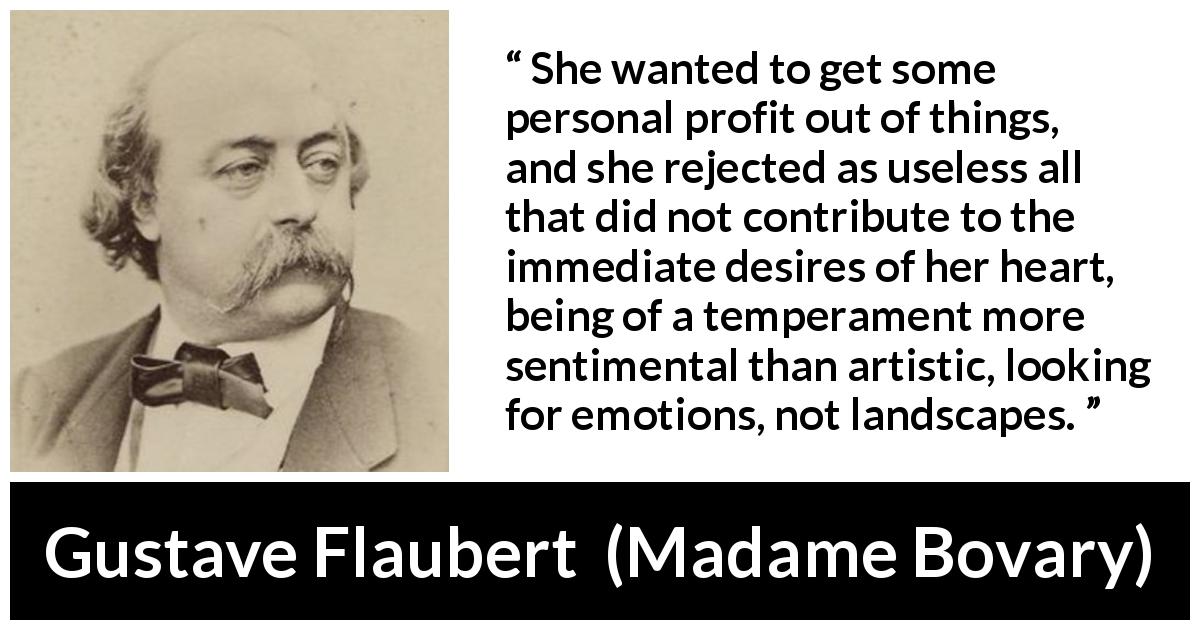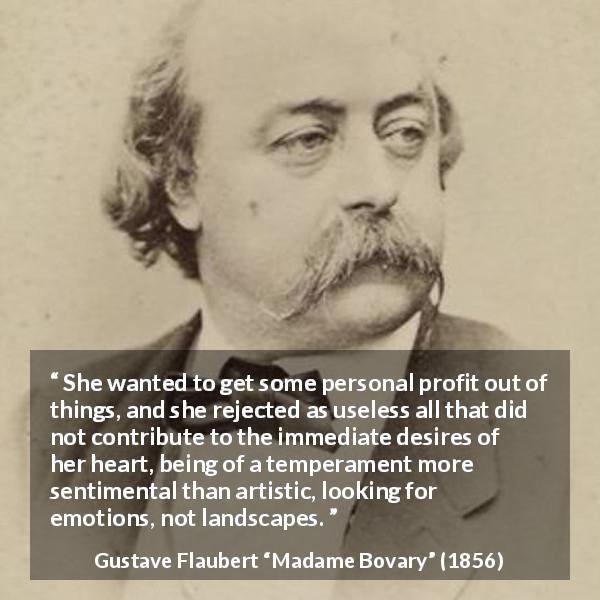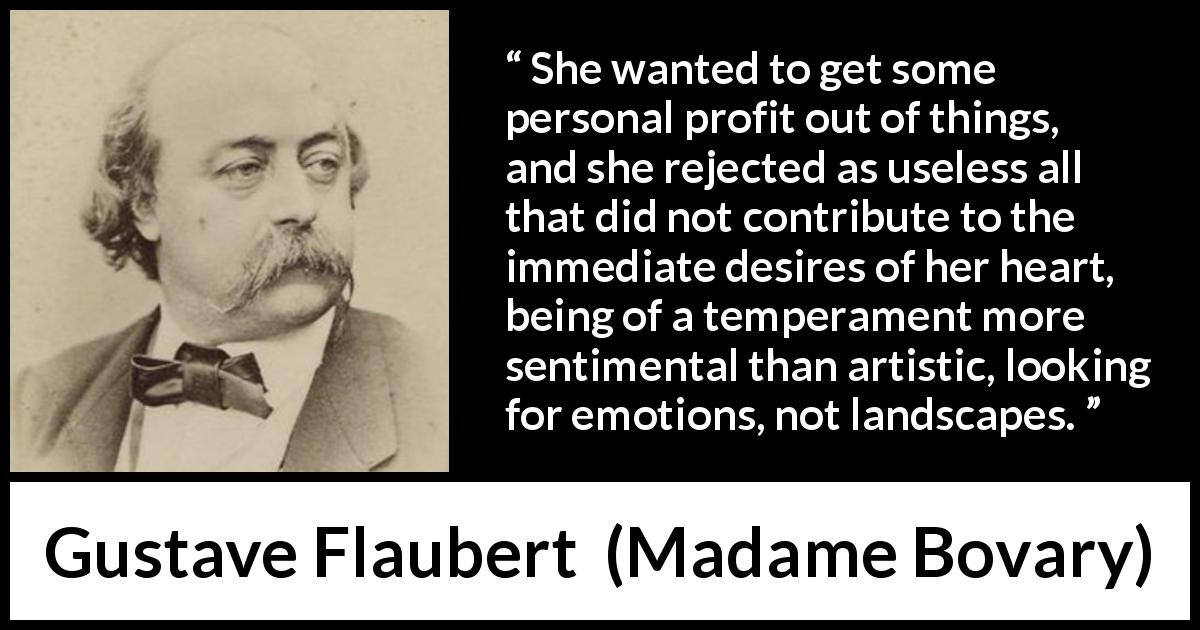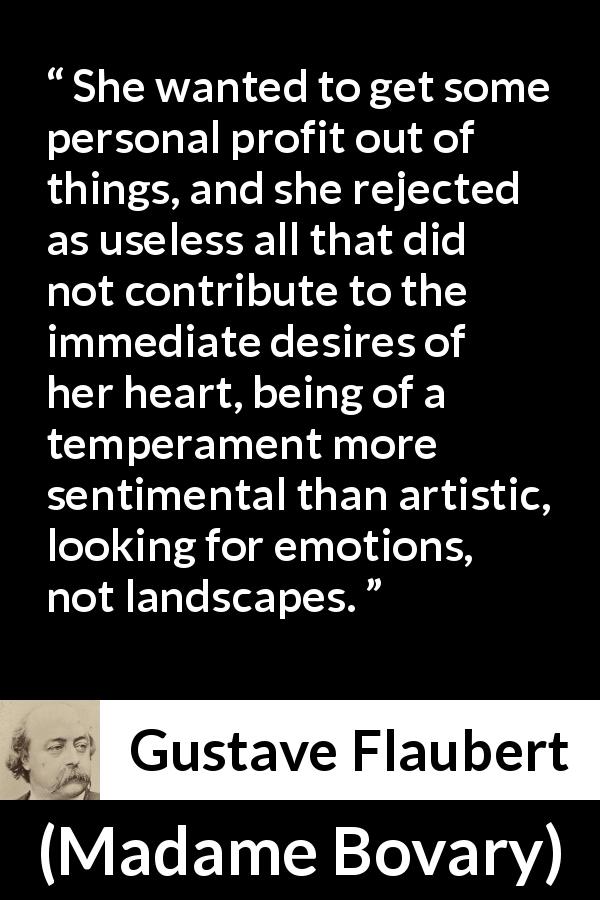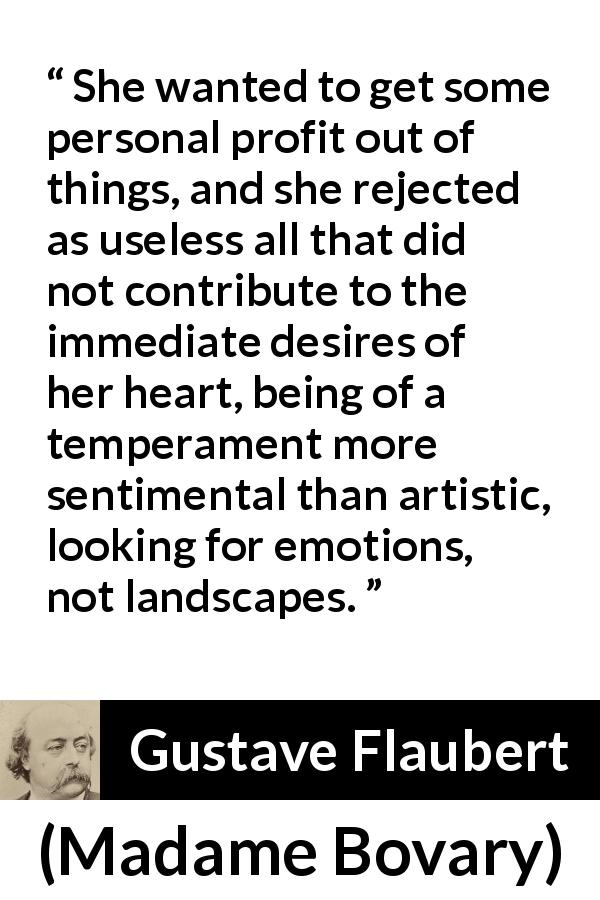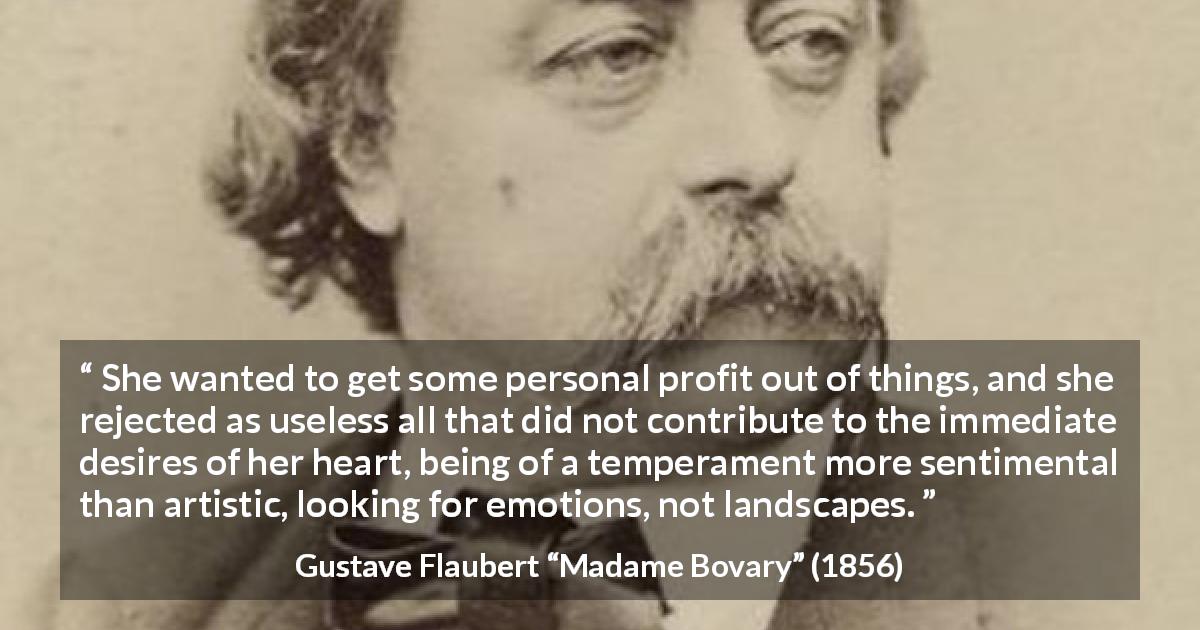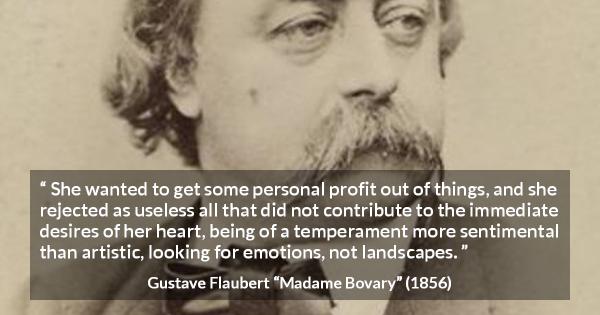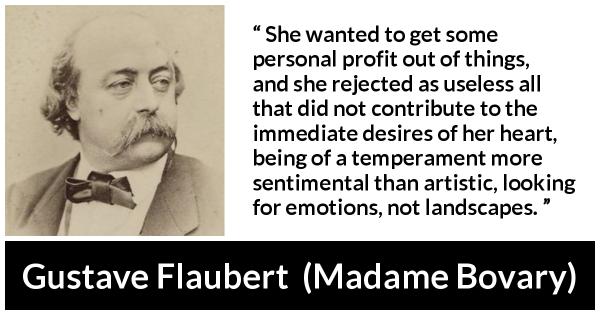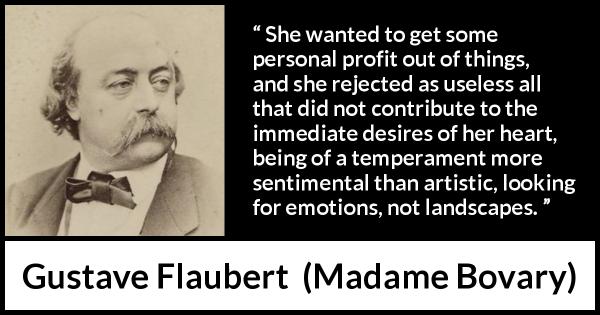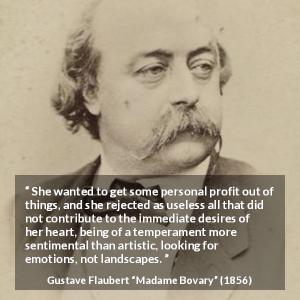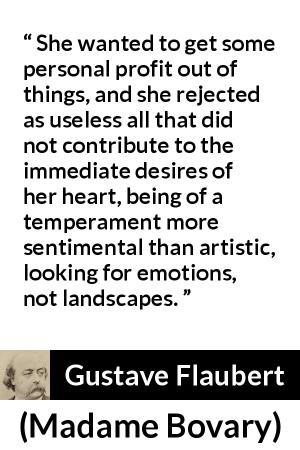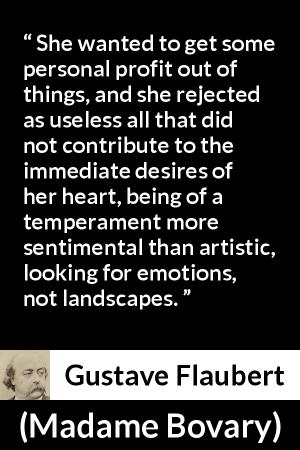“ She wanted to get some personal profit out of things, and she rejected as useless all that did not contribute to the immediate desires of her heart, being of a temperament more sentimental than artistic, looking for emotions, not landscapes. ”
Gustave Flaubert, Madame Bovary (1856). copy citation
| Author | Gustave Flaubert |
|---|---|
| Source | Madame Bovary |
| Topic | desire heart emotion sentiment |
| Date | 1856 |
| Language | English |
| Reference | |
| Note | Translated by Eleanor Marx-Aveling |
| Weblink | http://www.gutenberg.org/files/2413/2413-h/2413-h.htm |
Context
“But she knew the country too well; she knew the lowing of cattle, the milking, the ploughs.
Accustomed to calm aspects of life, she turned, on the contrary, to those of excitement. She loved the sea only for the sake of its storms, and the green fields only when broken up by ruins.
She wanted to get some personal profit out of things, and she rejected as useless all that did not contribute to the immediate desires of her heart, being of a temperament more sentimental than artistic, looking for emotions, not landscapes.
At the convent there was an old maid who came for a week each month to mend the linen. Patronized by the clergy, because she belonged to an ancient family of noblemen ruined by the Revolution, she dined in the refectory at the table of the good sisters, and after the meal had a bit of chat with them before going back to her work.” source
Accustomed to calm aspects of life, she turned, on the contrary, to those of excitement. She loved the sea only for the sake of its storms, and the green fields only when broken up by ruins.
She wanted to get some personal profit out of things, and she rejected as useless all that did not contribute to the immediate desires of her heart, being of a temperament more sentimental than artistic, looking for emotions, not landscapes.
At the convent there was an old maid who came for a week each month to mend the linen. Patronized by the clergy, because she belonged to an ancient family of noblemen ruined by the Revolution, she dined in the refectory at the table of the good sisters, and after the meal had a bit of chat with them before going back to her work.” source
